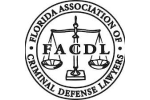to Save Yours
Money Laundering 18 USC 1956
Money laundering is a crime quite often associated with the mafia and illegal criminal networks. Through gangster movies the crime has become almost glorified as the acts underlying allow for organized criminal activity to progress and profit for years. Many understand the act of money laundering to involve money gained from an illegal activity that is then “laundered” to give it the appearance as if it were obtained in a legal fashion. As so often is the case with organized crime, money that was earned illegally is invested into a legitimate business that will then profit in a fashion that makes the earned business income appear as if it were gained through a wholly lawful process. Though this is not uncommon, the crime of money laundering can actually be committed via much simpler means. All that is really necessary to be charged is that illegally obtained money or property be used in a financial transaction while the person knows that the financial transaction is designed to conceal the illegal nature of the money. Most often money laundering is charged in a Federal criminal court and as such the penalties are quite severe if convicted. Our criminal attorneys always advise that if one receives a target letter from the government or one has already been charged with this offense, it is vital to speak to a Money Laundering attorney as soon as possible to protect your interests. Our lawyers are well versed in Federal crime and are available to help.
What is Money Laundering?
As stated above, in simple terms money laundering can be a taking of illegally obtained money and filtering it in a fashion as if to make it appear as if it were lawfully obtained. Statute 18 USC 1956 is the primary governing statute for this type of allegation. Section 1956 says that whoever, knowingly conducts or attempts to conduct a financial transaction involving the proceeds of a specified unlawful activity with the intent to promote the carrying on of specified unlawful activity; intent to engage in tax fraud; knows that the transaction is designed to conceal the proceeds of the unlawful activity; or knows that the transaction is designed to avoid transaction reporting requirements is guilty of money laundering. Under this specific statute the source of the funds must be one of the specified criminal acts found in 18 USC 1956(c)(7) or a crime incorporated by the RICO statute. Under Section 1956 if one is found guilty of this crime they shall be sentenced to a fine of not more that $500,000 or twice the value of the property involved in the transaction, whichever is greater, and up to 20 years in a penitentiary. Though one can be guilty of money laundering under 18 USC 1957, a charge under 1957 carries no intent requirement, but rather, the derived property value must be greater than $10,000 and a financial institution must be involved in the transaction.
How can We Help?
Any criminal charge in a Federal Court must be taken seriously. Not only are cases in this system often more serious, the discovery rules and rules of evidence are varied in a fashion to give a great benefit to the United States. Given the many nuances in the Federal system, you’ll not only need an experienced criminal lawyer on your side, but also be sure that your attorney is a well versed with Money Laundering charges as well. Our attorneys are in the Federal system consistently and have chosen to these Courts their preferred jurisdiction of practice. Contact our office today at 813-444-7435 or at 727-771-3847 and let us help you today.














